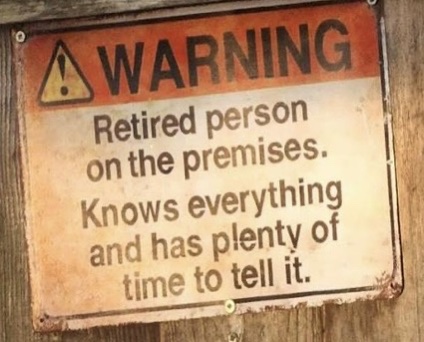


Why do men relish control so much? There are a number of ways to answer this question, but certainly the sense of having agency in the world, of being able to have an impact on our surroundings, of being able to see that we make a difference in the world—all of these can help explain why we like and want control.
Perhaps the above explains my ill-advised attempt to create a Billy Bob Thornton persona … Unfortunately Ann doesn’t think much of Billy Bob Thornton.
Self Control
Self-control is a Fruit of the Spirit, which means that we depend upon God’s grace to receive it, but we can’t be passive. Self-control is a discipline, too. It is a muscle we exercise or we don’t. We each have an obligation to mortify our flesh and resist sinful temptation in all forms. Given the powerful currents of our society, we must be intentional about practicing self-denial. Chastity is a virtue, even (especially?) in marriage. A beautiful marriage does not mean you will have all your sexual desires fulfilled. You won’t. You will have to practice self-control. Over and over again.
https://newsletter.oalannoble.com/p/self-control-and-scandals
Contemplation
Contemplation waits for the moments, creates the moments, where all can be a silent prayer. It refuses the very distinction between action and stillness. Contemplation is essentially nondual consciousness that overcomes the gaps between me and God, outer and inner, either and or, me and you.
The reason why the true contemplative-in-action is still somewhat rare is that most of us, even and most especially in religion, are experts in dualistic thinking. And then we try to use this limited thinking tool for prayer, problems, and relationships. It cannot get us very far. The irony of ego “consciousness” is that it always excludes and eliminates the unconscious—which means it is actually not conscious at all! Ego insists on knowing and being certain; it refuses all unknowing. Most people who think they are fully conscious (read, “smart”) have a leaden manhole cover over their unconscious. It gives them control but seldom compassion or wisdom.
Richard Rohr
Celebrity
there is a mania loose in our society where so many people are pursuing celebrity rather than artistry. In other words, they want to be famous for doing nothing. Reality TV and social media have encouraged people to strive, not for greatness, but for recognition. They will even settle for notoriety, engaging in the most cruel, inhumane, and self-degrading behavior just to have people recognize them on the street. It doesn’t matter why they recognize them, only that they do.
There’s a difference between fame and accomplishment, between celebrity and artistry. For me, fame, celebrity, and recognition should be something earned through passion, hard work, practice, and commitment. I have no beef with reality shows or social media millionaires who unbox stuff—they can be very entertaining—but those people should never be equated with those who actually produce something worthwhile.
The reason we are so quick to bestow celebrity onto so many people who do so little is that it keeps the hope alive in all people that anyone can become famous just by doing outrageous stuff that goes viral and gets clicks and followers. Everyone can’t write a Bob Dylan song or paint a Matisse or write a Maya Angelou poem—but they can rant about conspiracies or eat disgusting things. All with the sad subtext of: Please notice me!
Kareem Abdul-Jabbar
Theological Differences
…the Presbyterian Church (U.S.A.) wanted to add the song “In Christ Alone” to their hymnal Glory to God. They asked the authors of the hymn if they could change the original lyric “Till on that cross as Jesus died / the wrath of God was satisfied” to “Till on that cross as Jesus died / the love of God was magnified.”
…we can see why evangelical and progressive Christians experience mutual incomprehension when they encounter each other. They come from very different theological worlds.
Ricard Beck
Bad Data and its Consequences.
One consequence of looking at the wrong data to understand the shape of a problem is that data always hints at the solution.
For example, during the Vietnam War, U.S. military leaders measured “success” in the conflict using the same metric they used in World Wars I and II: body count—the number of enemy combatants killed. The assumption was that higher body counts equated to progress toward victory.
But the Vietnam War wasn’t a war of attrition. It was a war for public opinion. As a result, strategies were developed to maximize body counts, often at the expense of what truly mattered: winning the hearts and minds of the Vietnamese and beyond. Villages were bombed, civilians were displaced, and atrocities like the My Lai Massacre occurred. In the end, the focus on this narrow, incomplete metric contributed to widespread disillusionment, both domestically and abroad, and the eventual failure of U.S. efforts in Vietnam.
When Christian thought leaders look at the data available to them to understand the problems facing Christianity and to uncover solutions, they make a similar mistake. Here is the data set most leaders are using to make decisions:
67% of the U.S. population self-identifies as Christian, which equates to around 224 million people. This is down from 95% of Americans who identified as Christian in the 1950’s.
However, there is a catastrophic problem with this data.
Surveys that rely on self-reported faith and church attendance are notoriously unreliable as indicators of actual religious engagement. Recent studies have demonstrated that conventional surveys significantly overestimate both church attendance and religious adherence due to respondent bias.
Based on my own experience, when people find out I’m Catholic, due to knowing only Catholics in name only, they often expect me to fit this stereotype.
I consistently disappoint.
The idea behind this data is that church attendance and self-reported affiliation are considered the primary indicators of faithfulness. Thus, if you can win on these two metrics, you win the war. In other words, they think that Christianity is in a war of attrition with modernity. When someone gets baptized or says the salvation prayer, they think, “We got another one! Move them across the ledger!” This is precisely the wrong way to think about religious adherence, and its byproduct is a tremendous amount of time, effort, and energy wasted.
That’s because we misunderstand the war we’re fighting. We are not in a battle of attrition with modernity where individuals move across the “self-identification line” and are “on our team now.” Instead, We’re fighting a war of FORMATION with the modern culture. Each side forms its adherent’s behavior in this war to reflect its deeply held beliefs.
Admittedly, this is an oversimplification. However, to draw a clear contrast between Christianity and prevailing cultural trends, it helps to examine how belief systems manifest in measurable life outcomes. Two competing worldviews are at play here, each shaping behavior and priorities in radically different ways.

ARCHIE update
Wonderful news. He is making progress. Gabby is permitted to hold him. He has gained weight. Prayers continue. Still a long road ahead. Wait for him to wake up on the video.
STILL ON THE JOURNEY